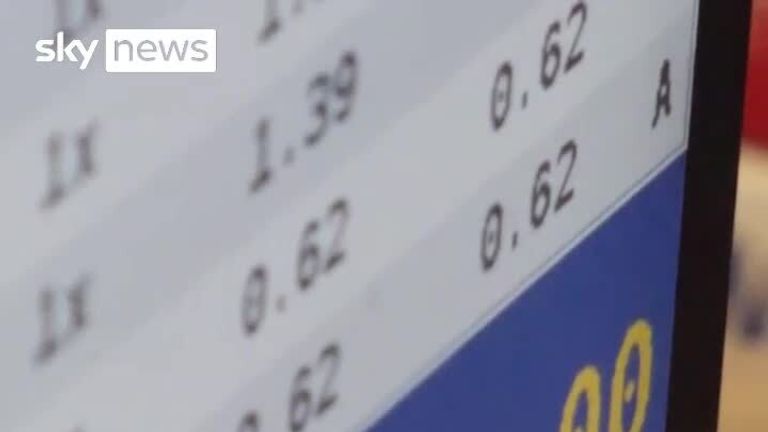British factories suffer weakest month since May 2020 as orders shrink

[ad_1]
British factories have suffered their weakest month since the early days of the coronavirus pandemic, with orders shrinking dramatically.
The manufacturing purchasing managers’ index – a closely watched indicator of economic activity – has hit a 39-month low of 43.0.
A score below 50 indicates contraction – and this is the 13th month in a row where growth hasn’t been recorded.
Rising interest rates at home and abroad are being blamed for the slump.
Rob Dobson, director at S&P Global Market Intelligence, said output and new orders have contracted at rates rarely seen outside of crisis periods such as COVID and the global financial crash.
“Purchasing activity, inventory holdings and staffing levels were all cut back in August as manufacturers strived to control costs, protect margins and operate in a much leaner and efficient manner,” he explained.
Glynn Bellamy, the UK head of industrial products for KPMG, said: “The inevitable lag between interest rate rises and the full impact on the global economy is leading to caution around investment and employment decisions.”
He added that the British manufacturing industry is highly diversified – meaning some sectors are performing more strongly than others.
Read more business news:
House prices fall more than expected
HMV owner edges closer to Wilko rescue deal
Major disruption as train drivers strike
According to Make UK, which represents manufacturers, the PMI reading reflects an “unpalatable cocktail” of high inflation eroding spending power, with rising interest rates dampening demand.
The organisation’s senior economist, Fhaheen Khan, warned: “Policymakers and rate setters will need to be wary of the cost of higher unemployment given prices remain elevated for many consumers and the loss of incomes will hurt many if we take this too far.”
According to S&P Global and CIPS, who perform the survey, the rate of contraction in British manufacturing has accelerated to its steepest in a year – and one of the fastest in history.
However, businesses in the sector are continuing to maintain a positive outlook.
Optimism has hit a four-month high, with 56% of companies expecting growth over the coming year amid hopes of a market revival.
Mr Dobson added that there is a plus side to the downturn: the cost of energy, fuel, metals and rubber is falling.
“[This] should help feed through to lower goods price inflation in the coming months,” he said.
[ad_2]

